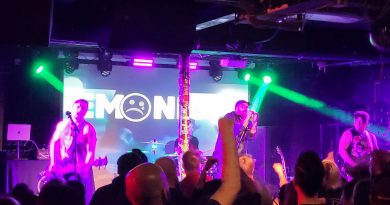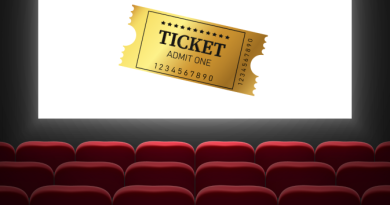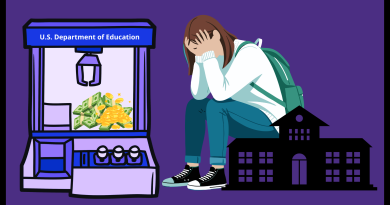Defining queer acceptance in a changing world
As the LGBTQ+ community explores their individual identities, some want to draw the line at what is acceptably queer.
By: Jake Boyette
LGBTQ+ rights have been viewed as more and more acceptable to the American public in general. Since 2001, there has been an increase from 40% to 64% of the U.S. viewing gay relationships as morally acceptable, according to a study by Gallup in 2024.
This has led to protections for LGBTQ+ communities and cultural acceptance as LGBTQ+ actors like Hunter Schafer and Elliot Page are now incredibly popular figures in the media.
However, while people have been more accepting of Queer people, some are trying to redefine what it means to be a part of the Queer community.
People like JK Rowling, have a complicated stance on transgender issues, especially with her criticism of the Scottish law that would have made it easier for people to undergo a gender change, worrying that the law will allow men to identify as women, potentially harming already vulnerable women in prison, according to her post on X.
The insinuation seems to be that some people pretend to be transgender in order to get into women-only spaces to harm them.
In a study by Obstetrics and Gynecology found that many of these fears are entirely unfounded. LGBTQ+ people don’t commit more or less sexual violence than non-LGBTQ+ people. There is a more terrifying trend, where transgender people are 4 times more likely to be sexually assaulted than their heterosexual counterparts.
What should be happening is the acceptance of all sexual and gender identities and a continuous push for rights that allow everyone in the LGBTQ+ community to live without facing prejudice. It is clear to see that, especially with the recent political focus on transgender identities and issues, transphobia is one of the leading reasons for this push about who is considered an acceptable gay.
These thoughts have also inspired groups like the British LGB Alliance, which pushes for the removal of the “T” with their CEO, Kate Barker explaining in a video titled “Don’t Call Me Queer,” on their website, stating they don’t want to be associated with the TQ+ anymore.
Barker talks about how the LGB doesn’t align with Queer, citing their own report on how people supposedly hated being under the Queer umbrella. She reads quotes from gay men and lesbian women who feel as if the label devalues them and what they want in the community.
“All these other people we think fall under the plus are not in danger. The people in danger are in Qatar, who are homosexual men who could face the death penalty, and I think it’s absolutely unforgivable to deliberately mask the fact in the name of an extreme ideology, unforgivable,” Barker said.
Barker’s statement comes down to a complete misunderstanding of the label of LGBTQ+. The statement that those who aren’t valid in their identities, like asexuals, aromantics and agender people, that Barker gives as an example, isn’t meant to discredit or mask harm to the LGB.
The community is supposed to support each other on their non-standard ways of expressing their identities, not tear each other down.
This comment comes down to a bigotry in the LGBTQ+ community, one based on fears that are rooted in transphobia and not understanding others. This is also apparent in the video as Barker insists that children are being told they might be the opposite sex, further explaining, “When we know many of those kids would grow up to be lesbian or gay or bisexual.”
On their website, they also link to the New York Post article called “Why it’s time for LGB to divorce T and Q.” Again, more of the same is said on how LGB doesn’t have much in common with the TQ+, but the article reveals another source of the fear, stating how there was a 7% decrease in support for same-sex marriages coinciding with a 4% increase with opposition towards changing one’s gender. The article states that radical elements of transgender issues, drown out gays and lesbians while also damaging the public opinion of the LGBTQ+.
This fear is rooted in the already existing homophobia that has manifested in the U.S. political landscape as bills and media targeting transgender people have become popular. This new wave of homophobia has decreased support for same-sex marriages, with violence against the LGBTQ+ community rising despite lower crime rates, according to the Human Rights Campaign.
However, these fears shouldn’t limit who we are. This allows homophobic people to use excuses to attack parts of the community, dividing it up and making it easier to erode the rights of the community.
“I don’t believe that concern is valid. People who are against the LGBTQ+ community will hate us regardless of how we act. We are already deviating from societal norms, regardless of how much we are doing so. I feel like trying to make ourselves more presentable is disrespectful to our community and history,” Grey, a trans-masculine and non-binary UW student, told The Ledger.
This sort of infighting has been around forever in queer spaces. Five years ago, pansexuals and omnisexuals were under fire by a small subgroup of bisexuals called “Battleaxe Bis,” which originally started as a group for bisexual awareness and turned into a hate group against other sexualities, which promoted love for all people. It stemmed from the idea that people in those other sexualities were just trying to feel more special with labels other than bisexual.
Issues with newer identities of neopronouns, distinct from pronouns like he/him, she/her, they/them, caused issues with some transgender people, as they thought the idea of those pronouns was ridiculous and damaging to the reputation of the transgender community.
These issues are types of bigotry that come from more misunderstandings of how people want to express themselves in their own way. There is a habit of people taking other people’s identities as a slight against themselves, like how it was shown in the Barker video and Atlantic article.
People should be proud of themselves and find something that they are comfortable identifying with. These labels don’t harm anyone, and everyone should have the free will to express themselves as they see fit.
“I personally think it’s great to see queer folks of all ages embrace identities like neo-pronouns and less conventional forms of sexuality. I have seen concern that these types of ‘micro-labels,’ as they’re sometimes called, run the risk of erasing our shared history or further splintering our community. However, I know from personal experience just how freeing it can feel to finally find that label that fits your feelings and experiences,” Steph Caronna, a transgender and nonbinary UWT alumni, told The Ledger.
However, this is not what some people think. On asexual visibility day, there was another wave of bigotry, this time against asexuals. JK Rowling posted on X, stating, “Happy International Fake Oppression Day to everyone who wants complete strangers to know they don’t fancy a shag.”
I personally can’t believe how sad it is seeing such hate come from members within the LGBTQ+ community. If we want to push against this, we must examine our biases on how we see other people’s expressions of themselves.
It may feel as if someone is ridiculous for choosing a certain label, or calling themselves something that you’re not familiar with, but it’s for them, not for you. To truly have a society where we can live and express ourselves freely, we must avoid hate.






